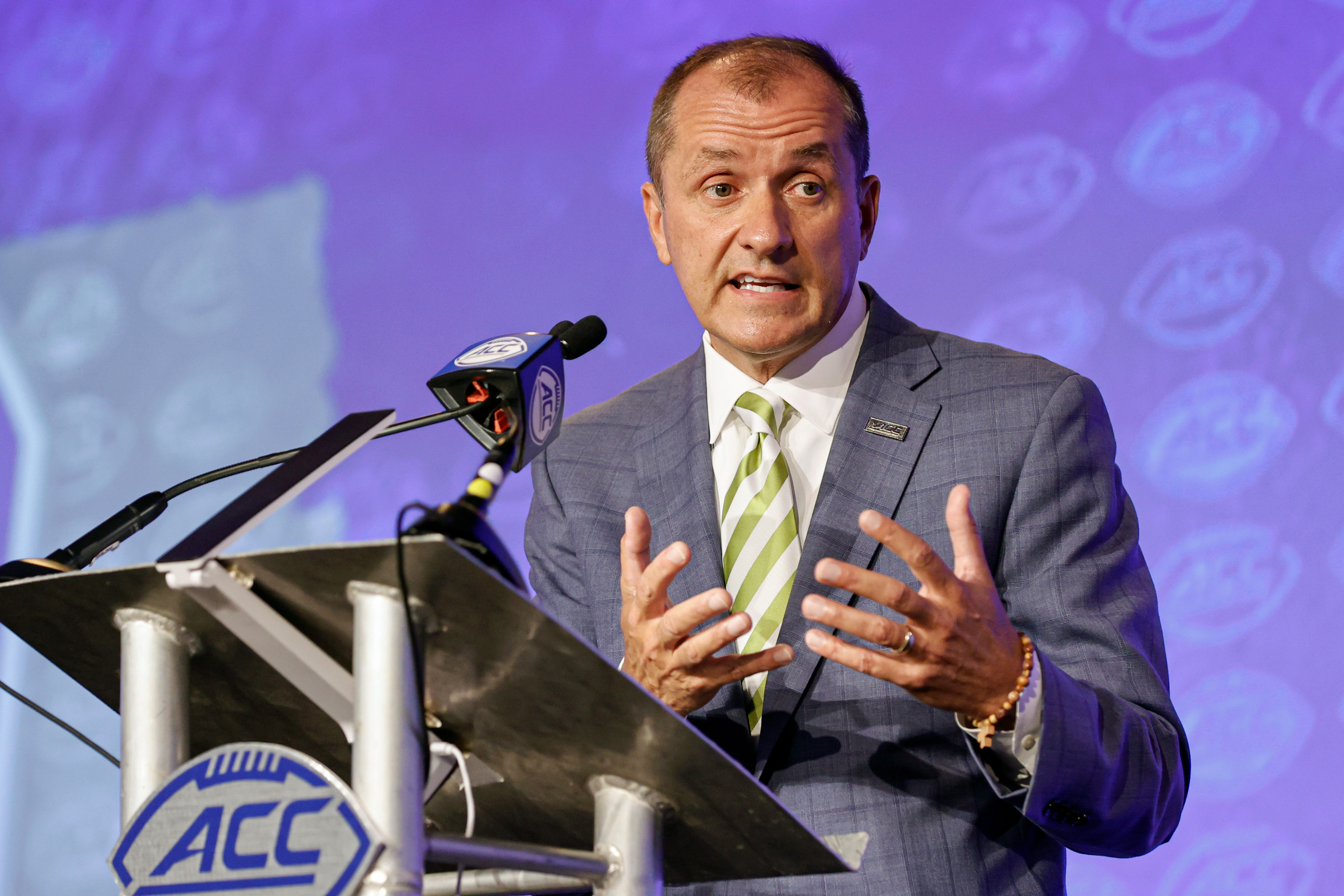
Financial tensions building in ACC
Thirteen years is a long wait. For a handful of schools in the Atlantic Coast Conference (ACC), it’s too long.
Earlier this week, a report from Sports Illustrated surfaced saying that seven of the 14 schools that are full-time ACC members have gathered numerous times with lawyers to take a closer look at the league’s grant of rights deal to re-examine just how unbreakable it is. The news that one-half of the schools in one of the country’s most prominent and historic college athletic conferences had met to discuss the matter sent shockwaves throughout the world of sports.
Earlier this month, the Post-Gazette detailed the internal frustration teams within the ACC felt about the league’s current media deal with ESPN, which doesn’t expire until 2036. The deal provides each of the 14 full-time member schools an annual payout of $35 million to $40 million, which is an estimated $30 million less than the projected cut teams in the Big Ten and SEC will receive when their respective new media deals begin in the next 18 months.
“I don’t think anyone is,” Miami director of athletics Dan Radakovich told the Post-Gazette when asked if he was pleased with the ACC’s current media rights contract earlier this month. “When you have the ability to be $30 million behind some other leagues, it’s not a good thing. It is what it is. We need to continue to work with our partner to help close that gap.”
As learned Monday, Miami was one of the seven schools working to possibly find a way out. Clemson, Florida State, Miami, N.C. State, North Carolina, Virginia and Virginia Tech make up a group now known as the “Magnificent Seven,” trying to find a loophole in a deal that has proven to be impenetrable since it was extended in 2016.
While some of the biggest brands in college sports have made a recent jump to a new league, things will be far more difficult for any team in the ACC to do so because of the current deal’s longevity.
Per the league’s exit agreement, member schools would be forced to pay an exit fee equal to three years of annual revenue, which would be north of $120 million. The agreement would also prevent the exiting school from not only earning TV revenue but possibly not having its teams’ games televised until the current media agreement ends in 2036.
Numerous ideas have been discussed to make the ACC’s current media deal more lucrative, with an unequal revenue share concept being at the forefront.
“There is a baseline for what we get,” Radakovich said. “After that, you should be able to reward the success. That’s what we haven’t been able to do yet. But, in fairness, we haven’t been talking about it that long, so I’m certainly not going to give up on the opportunity to try and get some type of success metric pulled together within the league.”
But leaders from other schools feel that even a revised revenue distribution won’t generate enough money to satisfy programs that are fixated on the payouts that will soon be taking place in the Big Ten and SEC.
“It’s going to have to be an institutional decision,” Pitt director of athletics Heather Lyke said. “Every institution is different — what they value, what they want to be connected to. I don’t think the revenue sharing changes would deter them from going to another conference if their reasoning was all about money.”
Revenue distribution is just one of many ideas on the table. Nonetheless, schools are still looking for a way out.
When the Post-Gazette spoke with ACC commissioner Jim Phillips earlier this month, he mentioned he was unaware of any schools looking to make an exit. He did, however, voice that realignment is — and always has been — a part of college athletics.
“That’s happened in the past to every conference,” Phillips told the Post-Gazette. “Throughout over 100 years of college sports, many schools have left and stayed. I think it should be about us trying to do everything we can to find additional resources.
“I take all this seriously,” Phillips continued. “I would never discount anything. You have to be ready for whatever — looking for schools to join the conference or schools leaving the conference. That’s just the reality of the world as it is.”
Phillips made it clear he isn’t the only one focused on easing the schools’ frustration. The commissioner told the Post-Gazette he believes every full-time school, along with Notre Dame — which is a league member for every sport but football — remains committed to finding a solution.
And that belief was further displayed this week. On Wednesday, at the ACC’s spring meetings, Phillips voiced that he believes the tension may have already been resolved.
“What I’ve been told is we’re all in this thing together, emphatically,” Phillips told reporters at the conference held in Amelia Island, Fla. “We all believe in the ACC. We want to continue to work together.”
Noah Hiles: nhiles@post-gazette.com and Twitter @_NoahHiles
